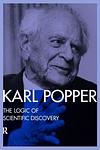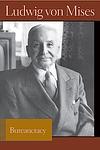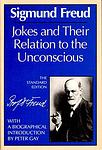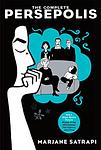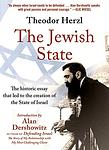The Greatest "Austria" Books of All Time
Click to learn how this list is calculated.
This list represents a comprehensive and trusted collection of the greatest books. Developed through a specialized algorithm, it brings together 300 'best of' book lists to form a definitive guide to the world's most acclaimed books. For those interested in how these books are chosen, additional details can be found on the rankings page.
Genres
Countries
Date Range
Reading Statistics
Click the button below to see how many of these books you've read!
Download
If you're interested in downloading this list as a CSV file for use in a spreadsheet application, you can easily do so by clicking the button below. Please note that to ensure a manageable file size and faster download, the CSV will include details for only the first 500 books.
Download-
26. Extinction by Thomas Bernhard
"Extinction" is a novel that explores the dark and complex themes of family, identity, and history through the eyes of its protagonist, a professor living in Rome. When he receives news of the deaths of his parents and brother in a car accident, he is forced to confront his past and his Austrian heritage. The narrative delves into his thoughts and feelings, his criticisms of his family and society, and his philosophical musings on life and death, all while he prepares to return to his family's estate for the funeral. The novel is renowned for its dense, stream-of-consciousness style and its unflinching examination of the human condition.
-
27. The Logic of Scientific Discovery by Karl Popper
This book is a significant work in the philosophy of science, proposing a methodology for scientific discovery that challenges traditional inductive reasoning. The author argues that scientific theories can never be proven definitively, but can only be corroborated or falsified through empirical testing. He introduces the concept of falsifiability as the key criterion for distinguishing scientific theories from non-scientific ones. The book also delves into the problems of induction, demarcation, and the relationship between theory and observation in scientific practice.
-
28. Concrete by Thomas Bernhard
The book is a darkly introspective narrative that delves into the mind of a reclusive, obsessive intellectual who is struggling to complete his scholarly work on the composer Mendelssohn. As he grapples with his own ailments and the perceived mediocrity of his surroundings, the protagonist's stream-of-consciousness monologue reveals his deep-seated anxieties, self-loathing, and profound isolation. The narrative is a relentless examination of the protagonist's psyche, showcasing his critical view of society and his own personal relationships, which are fraught with tension and dysfunction. Through this, the novel explores themes of artistic creation, intellectual elitism, and the suffocating nature of expectations and familial obligations.
-
29. Woodcutters by Thomas Bernhard
Woodcutters is a darkly humorous critique of Vienna's artistic elite. The story takes place over the course of a single evening, as the narrator attends a dinner party in honor of a recently successful actor. As the evening progresses, he reflects on the pretentiousness and hypocrisy of the guests, the mediocrity of their artistic achievements, and the tragic suicide of his former lover. The novel is a scathing indictment of the vanity and self-delusion of the artistic community.
-
30. Indian Summer by Adalbert Stifter
"Indian Summer" is a romantic novel set in the 19th century that narrates the story of a young man who falls in love with a woman, only to discover that she is his biological sister. The novel is a detailed exploration of the protagonist's emotional turmoil as he grapples with his feelings. The story also delves into the themes of nature, beauty, and art, with vivid descriptions of landscapes and the changing seasons. The narrative is a blend of realism and poetic symbolism, reflecting the author's philosophical insights into the human condition.
-
31. Confusion by Stefan Zweig
"Confusion" is a compelling narrative that explores the intense and passionate relationship between a student and his charismatic professor. Set in the early 20th century, the story unfolds as the protagonist becomes entangled in the professor's personal life, discovering his mentor's secret past, his struggling marriage, and his hidden homosexual desires. The book presents a profound exploration of human emotions, identity, and the complexities of love, against the backdrop of the societal norms of the time.
-
32. King Solomon's Ring by Konrad Lorenz
This book is a fascinating exploration of animal behavior by a renowned zoologist. It delves into the author's personal experiences and observations of animals in their natural habitats, focusing particularly on birds, dogs, and jackdaws. The author uses these observations to draw conclusions about animal psychology and behavior, often comparing it to human behavior. The book is named after the biblical King Solomon, who was said to have a ring that allowed him to understand the language of animals.
-
33. Beware Of Pity by Stefan Zweig
The novel explores the complex emotions and consequences that arise when a young lieutenant, succumbing to societal pressure, feigns romantic interest in a disabled young woman. His pity-driven actions lead to an entanglement of obligation, guilt, and false hope, ultimately culminating in a tragic series of events. Set against the backdrop of the Austro-Hungarian Empire on the brink of World War I, the story delves into the psychological depths of its characters, examining the moral dilemmas and the devastating impact of pity when it is mistaken for love.
-
34. The World Of Yesterday by Stefan Zweig
The book is a poignant memoir reflecting on the transformative events and cultural atmosphere of Europe before World War I, through the interwar years and into the rise of the Nazis. It captures the author's experiences of growing up in a vibrant pre-war Vienna, the intellectual richness and artistic achievements of the time, as well as the profound sense of loss as the world he knew disintegrated into chaos and totalitarianism. With a mix of nostalgia and despair, the narrative serves as a lament for the lost world of European culture and as a warning about the fragility of peace and the human cost of war.
-
35. The Guiltless by Hermann Broch
"The Guiltless" is a novel that explores the disintegration of values and the rise of fascism in Germany between the two World Wars. It follows the lives of several characters, including a businessman, a musician, and a murderer, whose stories intertwine to paint a picture of a society in moral and social decline. The narrative delves into their personal struggles and moral dilemmas, reflecting the broader societal issues of the time and offering a critique of the political climate that allowed for the rise of totalitarian regimes.
-
36. None but the Brave by Arthur Schnitzler
"None but the Brave" is a novel that explores the complexities of human emotions, relationships, and social norms in the early 20th century. The story follows a group of middle-class Austrians whose comfortable lives are disrupted when they become entangled in a series of romantic and sexual affairs. The narrative delves into their individual struggles, their moral dilemmas, and the societal expectations that they grapple with. The book is a profound examination of the human condition, highlighting the courage it takes to face one's desires and fears.
-
37. Three Case Histories by Sigmund Freud
"Three Case Histories" is a compilation of three of the most famous case studies by a renowned psychoanalyst, exploring the complexities of the human mind. The book includes the cases of 'Little Hans', a boy with a phobia of horses, 'The Rat Man', an obsessive-compulsive patient, and 'The Wolf Man', a wealthy Russian aristocrat suffering from a variety of psychoneurotic symptoms. The author uses these cases to demonstrate his theories on psychoanalysis, childhood sexuality, the interpretation of dreams, and the subconscious.
-
38. Bureaucracy by Ludwig von Mises
"Bureaucracy" is a critical examination of the structure and function of bureaucracies in both the public and private sectors. The author argues that bureaucratic management, with its focus on rules and regulations, is not only inefficient but also stifles innovation and individual initiative. He further contends that these problems are inherent in the nature of bureaucracy itself and are not simply due to poor management or corruption. The book also explores the impact of bureaucracy on economics, politics, and society as a whole.
-
39. Balzac by Stefan Zweig
This book offers a comprehensive biography of the famed French novelist and playwright, Honore de Balzac. The author delves deep into Balzac's life, exploring both his personal and professional experiences. The narrative sheds light on Balzac's tumultuous relationships, his relentless work ethic, and his extraordinary ability to depict the society and people of his time through his literature. Balzac's passion, determination, and genius are vividly presented, giving readers an intimate understanding of the man behind some of the most influential works in French literature.
-
40. The Unconscious by Sigmund Freud
This book delves into the complex workings of the human mind, exploring the concept of the unconscious. The author posits that our conscious mind is only a small fraction of who we are, and that a vast part of our thoughts, feelings, and behaviors are driven by unconscious processes. He discusses theories on dreams, slips of the tongue, and neuroses, arguing that these are all manifestations of unconscious desires and conflicts. The book provides a foundation for understanding psychoanalysis and the author's influential theories on the human psyche.
-
41. Weights And Measures by Joseph Roth
"Weights and Measures" is a poignant narrative that delves into the life of a conscientious imperial weights and measures inspector, who is uprooted from his contented existence in the city to a remote border town. In this new environment, he struggles with the corruption and indifference of the local merchants, which stands in stark contrast to his own principled nature. His sense of duty and his quest for justice become increasingly burdensome, leading to a profound personal crisis that reflects the broader decay of societal values in a world on the brink of great change and upheaval.
-
42. Venus in Furs by Leopold Von Sacher-Masoch
The novel explores the themes of love, dominance, submission, and power dynamics through the story of a man who becomes infatuated with a woman named Wanda. He convinces her to enter into a contract where he becomes her slave, allowing her to treat him in any way she pleases. Over time, the man's obsession with being humiliated and dominated leads him to a path of self-destruction as he grapples with his desires and the reality of his situation. The novel is a vivid portrayal of masochism and the complexities of human sexuality.
-
43. Wittgenstein's Nephew by Thomas Bernhard
"Wittgenstein's Nephew" is a semi-autobiographical novel that explores the friendship between the narrator and his friend Paul, who is the nephew of the famous philosopher Ludwig Wittgenstein. The story takes place in Vienna and is set against the backdrop of the Austrian mental health system. The novel delves into themes of sanity, insanity, and the fine line that separates the two, while also offering a critique of Austrian society. It is a meditation on the nature of illness, both physical and mental, and the impact it has on personal relationships and one's perception of the world.
-
44. A Sorrow Beyond Dreams by Peter Handke
This book is a poignant exploration of the author's mother's life and her struggle with depression, ultimately leading to her suicide. It provides a deeply personal and raw account of the author's attempts to understand his mother's despair and the societal constraints that contributed to it. The narrative is a profound reflection on memory, loss, and the complexity of human emotions, offering a stark and moving portrayal of a woman's life in a rigid, post-war society.
-
45. Beethoven's Letters by Ludwig van Beethoven
This book offers an intimate glimpse into the personal life and inner world of one of classical music's greatest composers through a collection of his correspondence. Spanning from his early years in Bonn through his rise to fame in Vienna and until his death, the letters reveal his relationships with family, friends, and fellow artists, his struggles with hearing loss, and his insights into his creative process. They also reflect his financial worries, his search for love, and his passionate involvement with the political and cultural movements of his time. The letters are a testament to his enduring legacy and provide a deeper understanding of his music through the lens of his personal experiences and emotions.
-
46. The Classical Style by Charles Rosen
This book is an authoritative analysis of the major musical compositions and stylistic innovations during the Classical period, focusing specifically on the works of Haydn, Mozart, and Beethoven. The author, a renowned pianist and musicologist, delves into the origins and development of the classical style, examining how these composers transformed the musical landscape with their approaches to form, harmony, and aesthetic. He offers readers a deep understanding of the period's music through detailed discussions of sonata form, the use of motifs, and the balance between melody and accompaniment, providing insights that connect the technical aspects of music theory with the expressive power of the classical repertoire.
-
47. Persepolis Two by Marjane Satrapi
This graphic novel continues the story of a young girl growing up in Iran during the Islamic Revolution. After being sent to Europe for her safety, she struggles with feeling out of place and longs for her homeland. Eventually, she returns to Iran, only to find it vastly different from the place she remembered. The book explores themes of identity, culture, and the effects of political upheaval on a personal level.
-
48. Tongue Set Free by Elias Canetti
"Tongue Set Free" is a captivating memoir that explores the author's personal journey of self-discovery and identity formation. Through vivid and introspective storytelling, the book delves into the complexities of Canetti's multicultural upbringing, his struggles with language and communication, and his quest for freedom and belonging. With poetic prose and profound insights, the author reflects on the power of words, the influence of cultural heritage, and the transformative nature of embracing one's true self.
-
49. The White Hotel by D. M. Thomas
The book follows the life of Lisa Erdman, a half-Jewish opera singer, through her erotic fantasies, her analysis with Sigmund Freud, her subsequent life in pre-war Vienna, and her eventual death in a Nazi concentration camp. The narrative is presented in a variety of styles, including erotic poetry, Freud's case study, third-person narrative, and a surrealistic opera libretto. The novel explores themes of sexuality, psychoanalysis, and the human capacity for evil and destruction.
-
50. Der Judenstaat by Theodor Herzl
This book is a seminal work proposing the establishment of a Jewish state as a solution to the long-standing persecution of Jews in Europe. The author argues that the best way to avoid anti-Semitism is to create a state where Jews can govern themselves. He discusses potential locations for this state, including Palestine and Argentina, and outlines a detailed plan for its economic, political, and social structure. The book is considered a foundational text for the Zionist movement.
Reading Statistics
Click the button below to see how many of these books you've read!
Download
If you're interested in downloading this list as a CSV file for use in a spreadsheet application, you can easily do so by clicking the button below. Please note that to ensure a manageable file size and faster download, the CSV will include details for only the first 500 books.
Download
